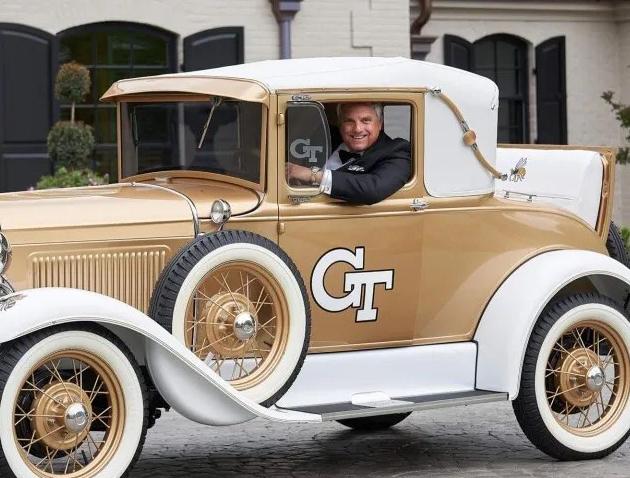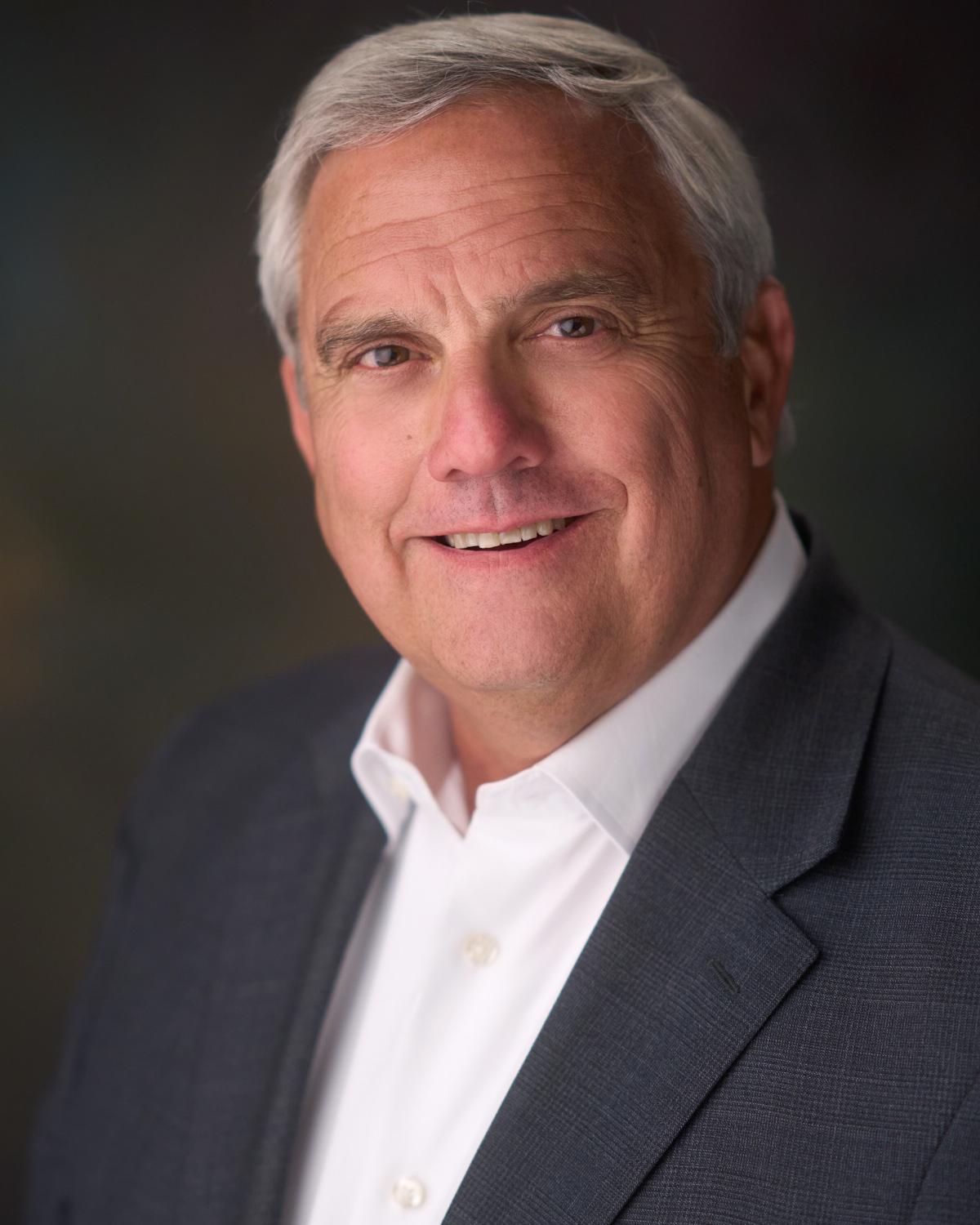Barry Cox still laughs when recalling his claim to fame: Losing to future tennis legend John McEnroe (twice) in the 1970s.
He’d squared off against McEnroe back in his high school days, competing in the Orange Bowl at a time when he was debating whether to pursue tennis or academics.
But Cox ultimately chose both, enrolling at Georgia Tech after the tennis coach at Clemson University told him he couldn’t pursue a chemical engineering degree while playing on scholarship for the tennis team.
He soon learned why that would be a challenge. Low grades during his sophomore year at Tech led to the loss of his scholarship and a redshirt season.
But he refused to let the demands of college tennis defeat him, as McEnroe had on the court.


Climbing the Wall
Although an academic counselor had told him, “Maybe this is a wall you can’t climb,” Cox was more determined than ever to conquer the challenge of playing a college sport while completing a rigorous major.
“Being on the tennis team, there wasn’t a lot of guidance at the time on how to set your class schedule or manage your time,” Cox said. “I realized it was a full-time job. I was up early in the morning running. In the afternoon, I’d practice with the team in between classes. I’d study five hours a night. If there was any playtime, it was Friday and Saturday.”
A talk with his father helped motivate him to put in the work to win back his scholarship. “My father said, 'I have a way of dealing with failures, it goes one strike, two strikes, three strikes, you are out. Which strike are you on? Love, Dad.'”
But Cox proved he was determined to win, graduating in 1982 after five and a half years with his degree in chemical engineering.
“Tech taught me never to give up,” he said. “I may not be the smartest guy in the world, but nobody’s going to outwork me.”
After graduation, Cox joined Texas Crude Oil Company in Midland, Texas, where he learned the business from the ground up. “They gave me a pipe wrench and sent me 300 miles a day checking oil wells,” he said. “It was humbling, but I loved it.”
Partnering with Dad
Two and a half years later, he was working with high-pressure gas in Lafayette, Louisiana, when his father (Charles Wesley Cox) called with a proposition.
“My dad said, ‘I have prostate cancer, and I’m probably not going to live very long. I want you to help me start a business,’” Barry Cox recalled. “I told him, ‘You’ve always been one hell of a salesman.’”
One month later, he moved to Mount Vernon, Indiana, “where I thought George Washington’s home was, and I’ve been here ever since.”
In 1986, the two founded The Cox Group (TCG), a small infrastructure support services business with one warehouse and one customer. Their first major project (a 250,000-square-foot distribution center for General Electric) set the stage for future success.
Growing the Business
Today, TCG is a diversified industrial conglomerate employing more than 4,000 people across 18 states and two Canadian provinces, serving more than 100 customers in logistics, real estate, manufacturing, transportation, and IT.
“In the beginning, I didn’t know how to run a business,” Cox admitted. “But my dad trained me well while he was still alive.”
Through the years, Cox has developed a leadership philosophy rooted in humility and hard work.
“There’s always someone better off than you and someone worse off,” he said. “You never know which way the wind will blow tomorrow, so stay humble. Treat people right. Don’t ask anyone to do something you wouldn’t do yourself.”
Loyalty to Tech
He credits Georgia Tech for keeping him grounded. “Tech makes you humble,” he said. “You think you’re smart and good at tennis, and then you realize there are people who are smarter and faster. So, you learn to work harder and never give up.”
Cox, who was born in Summit, New Jersey, and partly raised in Greenville, South Carolina, has become something of a brand ambassador for Georgia Tech Athletics in Mount Vernon, where the Cox Group is headquartered.
About five years ago, he bought a 1930 Ford Model A Sport Coupe, restoring it to become an exact replica of The Ramblin’ Wreck, and now drives it around town, where the vehicle has become a local celebrity.
“People love it,” Cox said. “It’s my way of sharing a little Georgia Tech spirit up here.”
Giving Back
As his professional success has grown, Cox has increased his financial support for his alma mater through the years.
In 2023, he and his wife Nikole made a $500,000 gift to Athletics’ Competitive Drive Initiative Turn 2 to accelerate funding for student-athletes and other operational needs, the impact of which was doubled thanks to matching support from the Institute and the Georgia Tech Foundation. And in 2024, he committed $1 million to support Athletics’ Full Steam Ahead Initiative.
In 2024, he also committed a $1 million gift to the School of Chemical and Biomolecular Engineering (ChBE) to create a named unrestricted endowment fund: a flexible resource to help the school meet emerging needs. This followed a $100,000 gift to ChBE in 2021 to establish the Barry E. Cox Scholarship for students with financial needs.
“At my age, you start wanting to thank the places that shaped you,” said Cox, who also set up a scholarship for the Tech chapter of his fraternity, Kappa Alpha.
“While I was Tech, I didn’t understand why I was studying all that theory, but then you go into the real world and say, ‘Wow, I’ve got a really good toolbox to reach into when I’m figuring how to solve problems.’”
In addition, Cox supports K–12 schools in Mount Vernon, the University of Southern Indiana, and Junior Achievement, where he speaks to students from elementary through high school.
“I tell them they can do anything if they’re willing to work for it,” he said. “That’s the lesson Tech gave me, and it’s one I’ve carried my whole life.”
Please note gifts and commitments in support of ChBE@GT are included in Transforming Tomorrow: The Campaign for Georgia Tech, a more than $2 billion comprehensive campaign designed to secure resources that will advance the Institute and its impact — on people’s lives, on the way we work together to create innovative solutions, and on our world — for decades to come.